Saint & Sinner Reconciled
Johnny Cash's maverick career contained disparate strains of America
By Frye GaillardIt stands there on the left, a mile or two beyond the tacky frontiers of runaway suburbia, looking like an antebellum prop on a movie set. Unlike most recording studios in Nashville, which are jammed together in a spruced-up swatch of urban renewal turf, the House of Cash rises stately and alone against a backdrop of rolling Tennessee pastureland.The grass is still bent from the dew, and the sound of a mockingbird echoes faintly across the hillsides as Johnny Cash's Cadillac glides into the parking lot. It is eight-thirty in the morning, a time of day that he would have dreaded a few years back -- during the seven or eight years when he would begin each day by gulping a handful of amphetamines. He wasn't too particular about the dosage, two or three at a time, ten or fifteen milligrams a pop, dexedrine, benzedrine, dexamyl. It didn't much matter as long as they did their thing -- as long as they helped him get from one concert to the next on the long road trips, and then, finally, as long as they helped him exist from one miserable morning until the one that followed.
The side effects were predictably squalid. He would pace the floor until the desolate hours of semidawn, until finally barbiturates would bring him down and lull him into a nightmarish sleep. He developed a nervous twitch in his neck, and apparently in his brain as well, judging from some of the things he did as his metabolism ran its tortured course from uppers to downers and back again.
He was arrested and jailed seven times, on charges ranging from public drunkenness to buying drugs from illegal sources. On one of his stops in jail -- in Carson City, Nevada -- only an impromptu version of "Folsom Prison Blues" managed to pacify an unglued lumberjack whose avowed intention was to strangle his more famous cellmate.
He once crashed through a warning gate at a US Navy bombing range and drove four miles across a live mine field in the Mojave Desert. He drove tractors over cliffs, wrecked half a dozen expensive cars, and tore up his marriage. Yet somehow he managed to survive until 1968, when, as Kris Kristofferson puts it, "he got him a good woman" and found himself reintroduced to Jesus.
That reintroduction became a bedrock for him, and in the process it gave his music a sense of mission that grows stronger and stronger as time goes by. Whether it's singing protest songs about the plight of American Indians, or doing free shows in racially tense prisons, or donating time and testimonials to Billy Graham's crusades, Cash is essentially giving expression to a brand of back-home Christianity that is far more subtle than most people might expect.
"Yeah, I guess that's true. That is what I'm trying to do," he agrees, as he munches on an apple in his wood-paneled office, his features ruddy and relaxed, and his trim, two-hundred-pound frame draped into an easy chair.
Cash does not give many interviews these days, but when he does, he participates fully and shows no traces of superstar pretensions. In the early stages, in fact, his voice will display just a hint of the butterfly tremors that are there around the edges when he walks on stage before five thousand people. But launching into an answer is like launching into a song, and his presence becomes certain and commanding as he begins to discuss, say, the relationship between his religion and his legendary concerts at several dozen prisons.
"The only prison concert I ever got paid for," he explains in a baritone voice that's as rich and ringing up close as it is on record, "was the one I did in Huntsville, Texas, in 1957. I took the show to the other ones free, I hope as my Christianity in action. I don't usually talk about that, and I wouldn't now if you hadn't asked me. I don't think a Christian oughta brag about his deeds, and anyway it's something that's meant a lot to me."
He peels off another chunk of apple with his black-handled pocketknife and then begins warming to the subject.
"There are a lot of people who don't understand what's happened to me," he says. "They say Cash used to be tough and now he's soft. The truth is I'm a lot tougher now. What those people don't understand is that the old Johnny Cash would have literally died in "66 or "67 if it hadn't been for faith.
"Faith is the foundation of everything I do. It's what I am. It always has been, really. There was just a time when I wasn't living it very well."
Cash does not usually begin such monologues on his own. He is not a heavy-handed proselytizer, for he understands full well the tedium of holier-than-thou sermons. But his Christianity is a serious thing, as are the morals and values that have been tied up with it ever since his boyhood days in Dyess, Arkansas.
He was raised in a five-room, wood-frame house in the sultry cotton country of the delta. The Depression was in full force, but his father, Ray Cash, always seemed to make enough of a crop to feed his own family and to bail out needy neighbors as well.Dyess, as it happened, was a New Deal experiment -- a socialistic farmers' co-operative with a store, cotton gin, and cannery that belonged to the farmers themselves. According to the plan, the co-op members would bring their edible crops to the cannery, and after the processing was completed they would get back eight of every ten cans. The other two would be sold to keep the project going, and if there were any profits at the end of the year, the co-op members would divide them.
The work-weary farmers didn't give much thought to the economic theories. But young John Cash was deeply influenced -- permanently, as it turned out -- by a curious meshing of the Protestant work ethic, a Golden Rule empathy for people in need, and the gritty fundamentalism of an Arkansas Church of God.
All of that has stamped his music with a distinctive tension, a creative tug-of-war between toughness and sentimentality, idealism and earthiness, that has enabled him to reach an impressive array of people and emotions. He could stroll onstage at San Quentin, for example, and sing a few old spirituals like "Peace in the Valley," tugging on the heartstrings and the latent, laid-away softness that doesn't usually show itself behind the walls of a prison -- and then he could break suddenly into one of the most ruthless and hard-hitting prison songs that many of the inmates had ever heard: San Quentin, I hate every inch of you.
Cash saw no contradiction between the feelings expressed in the spirituals and prison songs, or for that matter between the various kinds of stages where he was asked to play -- from Richard Nixon's White House, to the Ryman Auditorium, to the annual folk festival in Newport, Rhode Island. It all fit together deep in his instincts, and to understand how, it helps to spend an unhurried hour or two in his tastefully posh, second-floor office at the House of Cash.
The trappings around the room will tell you a lot -- a Holy Bible in the middle of a heavy oak coffee table, and next to it a paperback collection of Appalachian protest songs, Voices from the Mountains. On a table off to the side is a stack of testimonial books from born-again Christians, and on the wall behind his desk are five color photographs that he took himself. Three are close-ups of his family -- his second wife, June, and his young son, John Carter; and then a pair of nature shots that may or may not be intentionally symbolic -- a hummingbird hovering near a dew-covered blossom, and a gnarled and wind-blown cottonwood tree, clinging to life in the deserts of New Mexico.
Still another photograph, less predictable than the rest, leans next to the desk in a stained wooden frame. It's an autographed enlargement of a Bob Dylan album cover, with an inscription that reads: "To John and June, Love, Bob Dylan."
It turns out that Dylan and Cash go back a long way, to the 1960s when the fans of folk and the fans of country found themselves on opposite sides of a chasm -- one group focusing on the nation's shortcomings, the other on its promise. The folkies were younger and luckier. They had that crucial combination of intelligence, sensitivity, and economic security that made it possible to question the status quo; and when they did, in a time of war and civil rights protests, they found a lot of answers that were not very satisfying. The fans of country, meanwhile, had come out the other side of a ferocious depression and a couple of wars with their patriotism stirred and their standard of living on a steady path upward. They not only believed, they knew, that the country couldn't be nearly as badly off as its critics were contending. They became increasingly defensive and bitter, and before the shouting match was over it brought out some of the ugliest instincts that both sides had to offer.
At least that was generally true. But there were, of course, exceptions, and Cash was among them. He saw no problem in focusing on problems as well as prosperity, believing that the commonality of the American experience went deeper than even the most serious of political divisions. He came at that understanding through his musical intuitions, and the process began in earnest back in 1962, when Columbia Records released an album entitled The Free-Wheelin' Bob Dylan.
It contained some of Dylan's best-known originals -- "Blowin' in the Wind," "Don't Think Twice" (which Cash later recorded), and a bitter protest anthem called "Masters of War." All of them were done in Dylan's peculiar, talking-blues style that soon turned the folk world on its ear.
Cash, however, heard the album a little bit differently from most of Dylan's other admirers.
"I didn't know him back then," he remembers, casting a glance towards Dylan's likeness, "but I liked the album so much I wrote him a letter -- got his address from Columbia Records [which is also Cash's label] and I congratulated him on a fine country record. I could hear Jimmie Rodgers in his record, and Vernon Dalhart from back in the twenties, the whole talking-blues genre. I said, "You're about the best country singer I've heard in years.'
"He wrote back and seemed kind of flabbergasted," Cash continues. "He said, "I remember one time back in Hibbing, Minnesota, in 1957, you were there and I was one of the people out there listening.' He said, "All during the 50s, it was you and Hank Williams.'"
The letters were the start of a steady correspondence that cemented a sense of soul brotherhood even before the two singers met at the Newport Folk Festival in 1963. Theirs quickly became one of the most remarkable friendships in American music, and in some ways one of the pivotal expressions of Dylan's humaneness and Cash's Christianity.
Both performers recognized that the political divisions between their fans were far from frivolous, tied as they were to such issues as war and peace and residues of prejudice. But in their music at least -- and therefore in the deeper and instinctive aspirations of the people who listen -- the two performers sensed a similar groping for the same universals. In addition to Dylan's nonpolitical songs of rambling, Cash could identify strongly with a peaceful anthem like "Blowin' In The Wind." He had recorded his share of songs like it, and some that were even more obviously angry.
One of the angriest was "The Ballad of Ira Hayes," the story of a marine in World War II who had helped plant the flag on Iwo Jima hill. The photo of Old Glory on the rise became a classic, but as the song says, Hayes was "just a Pima Indian." He returned to the reservation, where jobs were scarce, and without either work or hope, he became a drunk. One night as he staggered home he passed out and drowned in an irrigation ditch with barely two inches of water in the bottom.
Cash recorded a whole album of songs about such Indian tragedies, but he also wrote and sang about other subjects that struck far closer to home for most of his audience. During the height of the protests against the war in Vietnam, he wrote a song called "What Is Truth?," offering a blunt chastisement of those who were closing their minds to the young.
The odd thing was that the song was a hit on the country charts, and the reason, Cash thinks, is that even in his most protesty songs, he never traveled far down the road to ideology -- never let his music depart from its basically Christian, humane roots to become the political property of any one faction.
But the factions didn't understand all of that, and they worked very hard to claim Cash as their own. Richard Nixon invited him to appear at the White House and, through H. R. (Bob) Haldeman, asked him to sing two of the most conservative songs of the era -- Merle Haggard's "Okie from Muskogee," and a reactionary recitation called "Welfare Cadillac," written on a whim by an amateur songwriter named Guy Drake.
Cash politely refused to sing either song, much to the delight of his growing following of college kids. But much to their simultaneous disappointment, he pointedly refrained from criticizing either Nixon or the songs themselves, explaining instead that he didn't know "Welfare Cadillac," and that he was sure Nixon would soon invite Haggard himself to sing "Okie from Muskogee."
"I try not to become involved in politics," Cash insists, and in a narrow sense that's certainly true. But in a larger sense it isn't, for Cash began to understand that people saw him as a reconciling force -- a person whose music and presence could somehow reach beneath the anger and divisions.
One symbol of that mission became his television show on ABC. It began in the fall of 1969, and during the course of the two seasons it lasted, Cash managed to plug such country artists as the Statler Brothers, Charley Pride, and a struggling young songwriter named Kris Kristofferson. But equally significant in his own mind was his attempt to introduce his country fans to the folk artists many of them might have expected to despise: Bob Dylan, Pete Seeger, Arlo Guthrie, and Judy Collins, to name a few.
"A lot of people got their first look at American folk on my country show," Cash remembers. "I thought at first we might get some flak for it, but we didn't really. I saw that country and folk had a lot in common."
There was nobody any better at proving the point. Many nights during the time of trouble in the country, Cash would wander onstage at the Grand Ole Opry, the late-night crowd moving toward the point where fatigue gives way to a round of rebel yells. Clad in his ruffled white shirt and Lincolnesque dress suit, he would run through a kind of autobiography in song: from lonely-times ballads like Kristofferson's "Sunday Morning Coming Down" to the gospel songs of his later years, delivered in a voice that sounds as if it's welded to the lyrics.
During one of those appearances, on March 15, 1974 -- the last performance of the Grand Ole Opry before it moved to its slick new quarters at Opryland -- Cash paused briefly in the middle of his set and ad-libbed an introduction to a pair of new songs. The first of the two was also the oldest, a personal anthem called "Man in Black," written in 1971 before a concert at Vanderbilt University. It was intended to be a statement of his political philosophy, and as the spotlight narrowed and focused on his face, these were the words he began to sing: I wear the black of the poor and the beaten down,/Livin' in the hopeless, hungry side of town.
As the lyrics poured out, the old men with wrinkled faces and the scabs of fresh razor nicks sat ramrod straight and squinted toward the stage as if it were crescendo time in the preacher's sermon. The good ole boys decided to ease off for a while on the rebel yells, and the ladies with the piled-up hair and the Instamatic cameras let their flashbulbs fall temporarily silent.
Cash had gotten inside them the way he always does. But then, to underscore the point that he was still one of them, he quickly shifted gears and moved into a song called "Ragged Old Flag." It was a poignant pledge of allegiance, the story of an old man sitting in a small-town square, gazing at the tattered flag that flies above the courthouse and speculating about all the things that it and the country have been through together.
"I don't like to brag," the old man tells a stranger, "but we're mighty proud of that ragged old flag."
It was a triumphant night for Johnny Cash, one of many as he built on a legacy that would only grow larger and stronger with the years. And so it was no surprise on the day of his death that the radio was overflowing with his songs. There was Cash himself singing "Folsom Prison Blues," and Emmylou Harris with perhaps his finest ballad of heartache, "I Still Miss Someone."But even more poignant was his daughter Rosanne, singing "My Old Man," the haunting tribute she had written for her father. She freely acknowledged his limitations: He believes what he says he believes, but that don't make him a saint. But then at the end of every verse, she always returned to the same affirmation, tender and simple and straight from the heart:
How I love my old man.
She was singing, of course, from the heart of us all.
Speaking of Vibes_feature.html
-
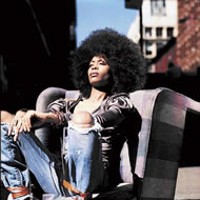
The New Mythology of AFRO-FUTURISM
Jul 20, 2005 -
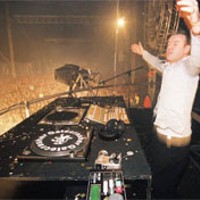
Nothing Fails Like Success
Jul 13, 2005 -
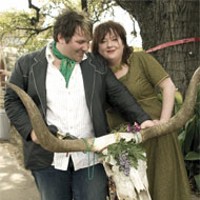
Scarlet Begonias
Jul 6, 2005 - More »
Latest in Music Features
More by Frye Gaillard
-
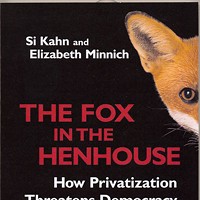
Efficiently Careless
Nov 2, 2005 -
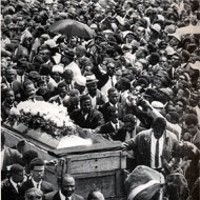
Where The Action Was
Jun 1, 2005 -

Curtis Turner, A Great Driver
Mar 23, 2005 - More »
Calendar
-

Aria Tuscan Grill Featuring Allegrini - Charlotte Wine + Food Week @ Aria Tuscan Grill
-

Angeline’s Featuring Sciandri Family Vineyards @ Angeline's
-
Ross Lynch & Rocky Lynch present The Driver Era: Live On Tour @ N.C. Music Factory
-
Tyler Braden - Meet & Greet Experience Upgrade @ Coyote Joe's
-
 Ride The Lightning - Metallica Tribute Band @ Amos' Southend
Ride The Lightning - Metallica Tribute Band @ Amos' Southend
-
Darian La Sparrow Takes an Unconventional Route to the Soul
Bedroom Brilliance
-
Elenora Fagan balances life between rock and rap 2
Band mixes an amalgam of genres, including rock, hip-hop, reggae and jazz
-
Live review: LeAnn Rimes, Uptown Charlotte (8/17/2014) 2
Singer caps off day which included second annual parade.












